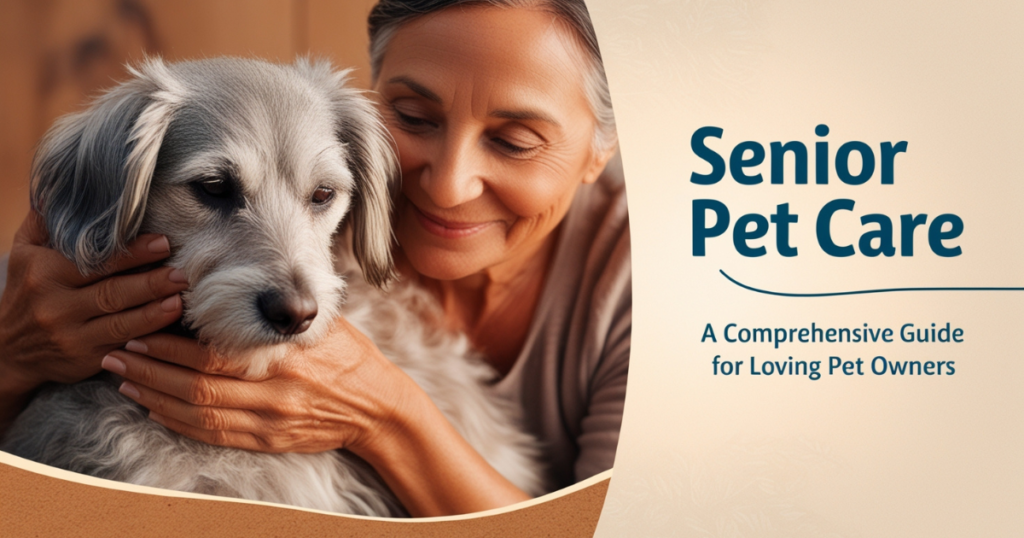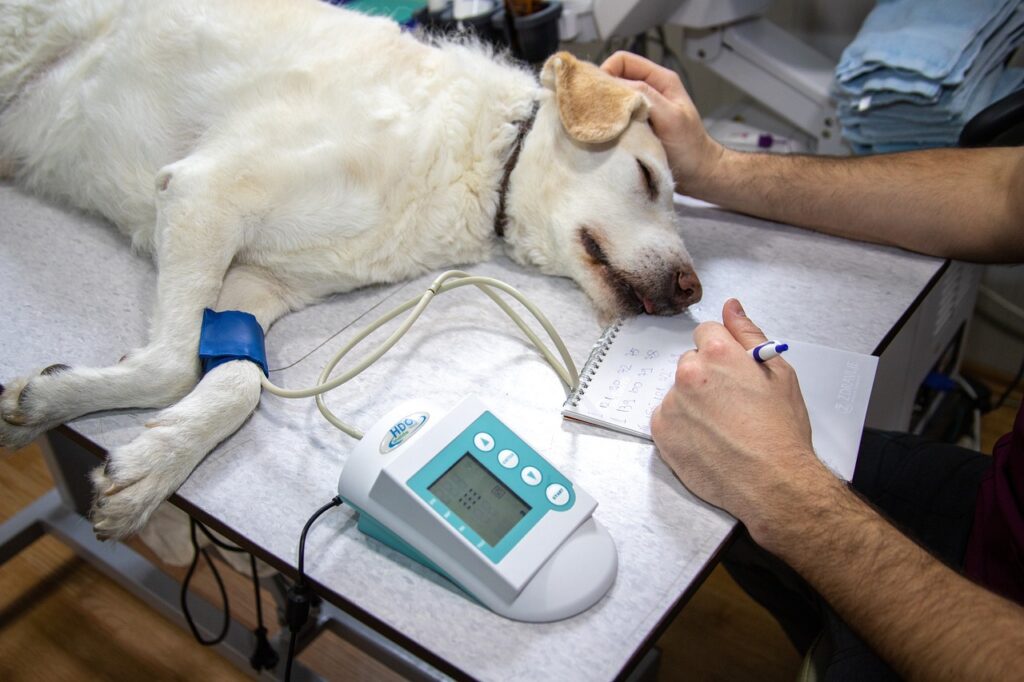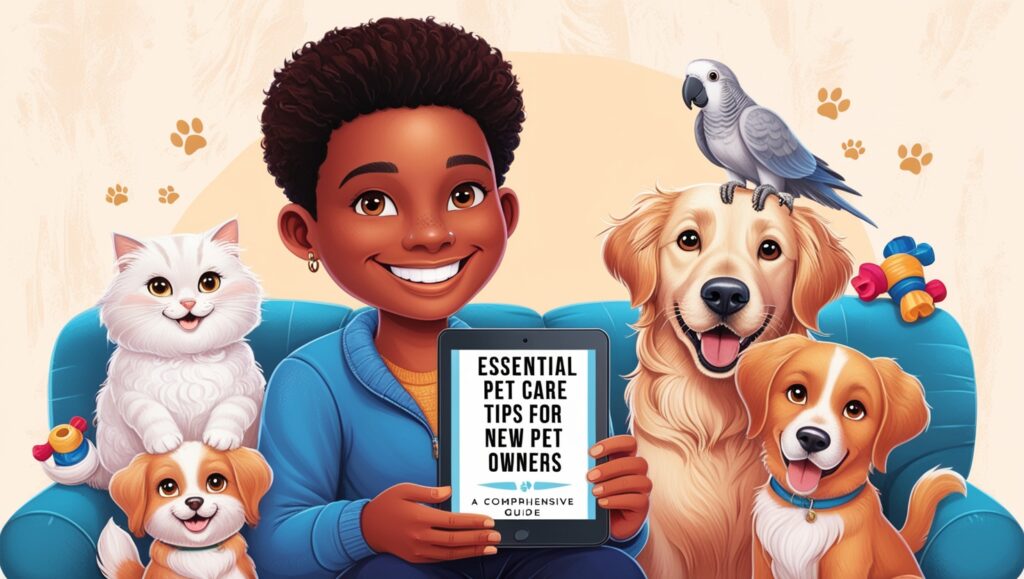Senior Pet Care is a sensitive, wise, and deeply dedicated experience directed toward the betterment of the life quality of our dear friends. As the pets grow older, their needs also change in radical ways, which requires the owners to change their handling habits in order to keep their dogs healthy, pleased, and comfortable. This guide explores such nuances in senior pet care that will definitely be of great help to any pet owner in moving through this stage of their pets’ lives graciously and with much-needed empathy.
Understanding the Aging Process in Pets
Aging in pets occurs very differently from one animal to another and is highly influenced by factors such as breed, size, and overall health. Generally, pets are considered seniors around seven years of age, though larger breeds usually advance a little more quickly than smaller ones. Many physical and behavioral changes may herald this transitional period, including such things as reduced mobility, shifting metabolism, impaired hearing and vision, or even temperament changes. The ability to recognize these signs allows a pet owner to take proactive steps toward understanding and meeting their pets’ changing needs. Senior Pet Care can provide valuable guidance and support during this important phase of a pet’s life.
The numerous physical health problems are quite rampant in senior pets, with conditions like arthritis, dental diseases, and obesity setting in. Arthritis, for instance, very much affects the pet in terms of movement; activities the pet could easily do before turn out to be a lot difficult for it. During this period, regular veterinary check-ups are essential as it creates an avenue for the early detection and intervention of any health issue that might come up. Second, the owner of the pet should also be aware of symptoms of common illnesses, such as constant coughing, excessive thirst, or changes in appetite, which give warning of an underlying problem that needs attention.
Nutrition: Tailoring Diets for Senior Pets
As pets enter old age, nutritional needs change, and a thoughtful reevaluation of diet is prudent. Diets specifically formulated for your aging pet usually have fewer calories and more fiber to help regulate digestion. These diets may also contain ingredients such as glucosamine and omega fatty acids, which not only alleviate the pain of arthritis but also strengthen the joints.
It is better to switch to a senior food gradually to avoid gastrointestinal upset. Blending the new food with the old over a period of days permits pets to adjust easily. Serving sizes are also something the pet owner should be aware of, since many senior pets become less active and thus require fewer calories. It is just as important, however, that their meals remain nutritionally complete, since deficiencies in any one of these areas can lead to a multitude of health problems.
Hydration is another important component of caring for aged pets. Older pets often do not drink enough water by themselves to keep them hydrated, placing them in danger of being dehydrated. Ensure there is always fresh water available, and consider putting your cat on wet foods to increase the amount of fluid intake. In addition, observing water intake of the pet and changes in urinary habits may be indicative of overall health status and can help owners identify impending kidney issues or other issues at hand.
Exercise and Mental Stimulation: Keeping Pets Active
It is highly important to continue providing senior pets with an adequate amount of physical activity for the sake of flexible joints, heart health, and the prevention of obesity. The intensity and duration of this exercise, however, should be tailored according to each animal’s potential and current health. Shorter walks can be given more frequently to allow dogs some outdoor time without overexerting themselves. They can be kept active by playing with soft toys or other gentle games that require interaction.
Activities that mentally stimulate, such as cognition, are just as important for our older pets. Food puzzle toys, scent games, and training sessions will mentally stimulate a pet, giving them a feeling of accomplishment. Simple interactions with owners can strengthen bonds and improve emotional well-being.
It is necessary to know the signs of fatigue since they tire so much easier than when younger. Owners should always be informed about the dog’s energy status and make necessary modifications in their activities with their pets. They can ensure that pets keep comfortable and do not get hurt by adding rest breaks and observing them when engaging in any exercise.
Creating a Comfortable Living Environment
One of the most important aspects of care for a senior pet is a comfortable living environment. As pets become older, they tend to have a hard time when it comes to motility, and therefore there is a need to be able to adjust the environments to conform to their needs. Offering plush bedding in an environment where quietness characterizes will cushion them from joint discomfort and offer a sense of security. Besides this, owners are forced to take into consideration the layout of homes; they should reduce stairs and substitute them with ramps or pet steps to help pets move easily with their surroundings.
Other major areas of older pet care involve regular grooming. Their grooming needs could increase rather than decrease with their age and might help prevent painful matting. Besides, dental health care is also an essential one. Dental diseases can bring serious health problems to them. Regular brushing, together with dental treats and cleanings by a veterinarian, will go a long way in the prevention of oral diseases that could affect the general health.
Allowing time for socialization among aged pets will help in improving their quality of life. Interaction with other pets and people alone can be a form of mental stimulation and take away feelings of loneliness. Playdates organized with friendly, polite pets can give an enabling environment for this social interaction, which boosts happiness and emotional satisfaction.
Conclusion: Learning to Love the Process of Caring for Older Pets
Caring for an aged pet is a solemn responsibility that calls for much devotion, compassion, and awareness of their special needs. With preventative health care, nutrition, and physical activity, along with an enabling environment to reside in, the quality of life for aging companions could be greatly improved. Owners and pets are attached through unconditional love, and as pets reach their golden years, patience and compassion are key in embracing this journey. When done properly, senior pets will enjoy the rest of their time bringing cherished companionship and times to their owners.



